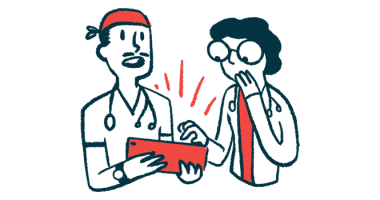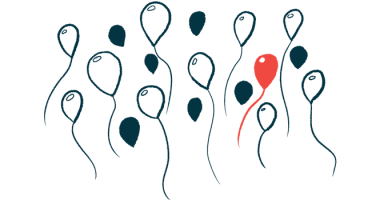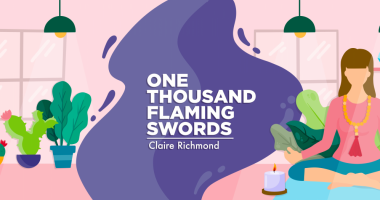How to Come Out With Having a Rare Disease
Disclosure brings challenges, but it can also strengthen relationships

I live with acute hepatic porphyria (AHP), an inherited metabolic disorder that affects my liver function and my day-to-day life. By the time I got diagnosed with AHP six years ago, everyone in my life knew something was going on. At that point, thanks to a seven-month acute attack, I’d canceled tons of meetings, social engagements, and work days.
I came out with my disease via social media, directly after diagnosis. I didn’t give it much thought.
My decision was largely based on my exhaustion. I’d already posted stories of sunrises and sunsets from each of my various hospital beds, so most everyone knew I was on a medical tour of the greater Midwest. Public posts disclosing my diagnosis, I reasoned, would save me time and energy in the future. In one fell swoop, I attempted to explain my situation and wrap up dozens of conversations
I received calls, texts, and emails daily, asking me how I was doing. Many people were genuinely concerned, but some were simply being polite. Generally speaking, friends and loved ones didn’t know how to respond to my news. What did it mean to have an obscure rare disease? Would it kill me? There was a treatment; wouldn’t that fix me? Was it necessary to drop off a casserole?
Turns out, understanding how my life is affected by AHP is a lot to expect from another. I wouldn’t say my post backfired, but my situation was more than my loved ones bargained for. I wasn’t ready for the misperceptions, assumptions, and stigma. I wasn’t prepared for my medical trauma to be reduced to a tragic tale. I lived in fear and pain for 19 years while searching for a diagnosis. Finally receiving answers was a life-changing moment no one else could comprehend.
Maybe I’d never be truly ready to come out, and this was all part of the process.
How to disclose your disease
It’s one thing to share my rare disease diagnosis with people I know, but I had to learn quickly when to disclose it to people I’d just met. Shortly after my diagnosis, I felt like I had a sign on my forehead. Because I was judging myself, I was convinced others could see my struggle. But that wasn’t the case, and I decided early on that people who’ll never be affected by my disease don’t really need to know about it. I recently wrote about one night of glorious anonymity, when I wasn’t the girl with the weird illness at a neighborhood block party.
When I do start getting close to someone, self-disclosure becomes an important step in building our relationship.
A few months ago, I came across an article in The New York Times about dating with chronic illness. Its advice applies to new and burgeoning friendships, too. The article featured Quincee Gideon, a Los Angeles psychologist who specializes in treating people with chronic illness. “Sharing health information can be particularly empowering for chronically ill people as they examine any internalized stigma and shame,” she said. Disclosure also enables those requiring accommodations to get their needs met.
I make a habit of telling my friends and loved ones that plans are always tentative. AHP is unpredictable. I frequently have to cancel at the last minute, which is a red flag to people who don’t know about my illness. When I communicate my needs upfront, my loved ones are incredibly understanding.
Being accommodated out of love and feeling acceptance from others are powerful. It helps me build closer relationships of mutual trust and increases my self-compassion.
How to refer to yourself
My illness came on gradually and then suddenly, and I only started referring to myself as “disabled” when I couldn’t sustain a full-time job three years ago. This seems like a very literal take on the term, but it also demonstrates my fear to label myself, as well as my misunderstanding of what it means to be disabled and living with a rare disease with chronic symptoms.
So should you call yourself “disabled,” a “person living with a rare disease,” or “chronically ill”? I’ve been asked this question by members of the porphyria community more times than I can count. My biggest takeaway from these conversations is that it’s deeply personal. I resonate with person-first language, such as “person with a disability” or “person with chronic illness.”
Regardless of how you choose to refer to yourself, disclosing a new or ongoing health condition to someone who’s unfamiliar with chronic illness can be emotional, confusing, and anxiety-provoking. Just remember, we all yearn for connection. Allowing others a chance to accept us is a gift to our relationships.
Note: Porphyria News is strictly a news and information website about the disease. It does not provide medical advice, diagnosis, or treatment. This content is not intended to be a substitute for professional medical advice, diagnosis, or treatment. Always seek the advice of your physician or other qualified health provider with any questions you may have regarding a medical condition. Never disregard professional medical advice or delay in seeking it because of something you have read on this website. The opinions expressed in this column are not those of Porphyria News or its parent company, BioNews, and are intended to spark discussion about issues pertaining to porphyria.








Comments